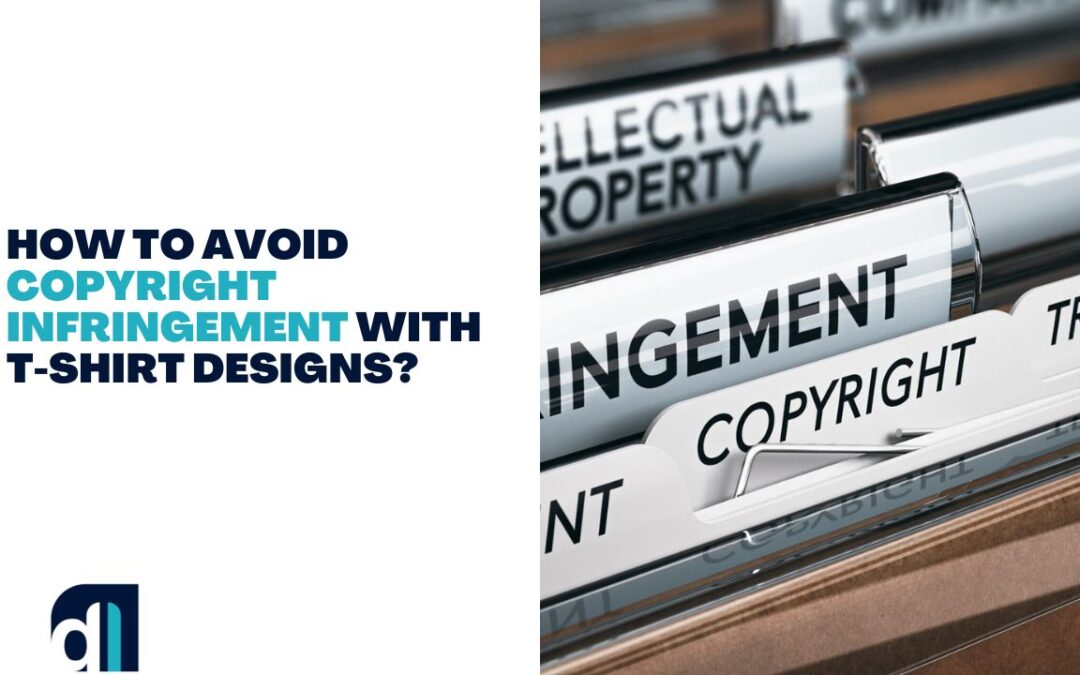Copyright is a safeguard provided by the intellectual property law for creativity and ownership rights. An artist or an inventor can protect their rights and profit from it by registering their work. The purpose behind copyright law is to ensure that every individual can fairly represent their work.
T-shirt designing is no exception to this rule. If you design or sell t-shirts, it is important to be mindful of the difference between inspiration and outright plagiarism. However, practically, this is easier said than done. If you have a t-shirt printing business and you wish to know how you can avoid t-shirt copyright infringement, then this blog is the right stop.
What is Copyright?
Copyright is a form of IP protection which protects original work of authorship by granting the creator legal rights to distribute and monetize their work. On a broad spectrum, it covers works of art and literature. These works can range from books, artwork, music, films, computer programs, and even maps.
Keep in mind that copyright does not protect ideas, concepts, rules, or procedures, and even things lacking creative value such as names, phrases, or slogans. Hence, if the concept of your design is merely encapturing a common idea then you are safe from the infringement violation.
A work automatically receives copyright protection if it is in a fixed form i.e., the work has been created in a permanent form such as a book, music composition, graphic designing, etc., and it can be reproduced.
In the U.S., the time frame for copyright protection usually lasts through the author/creator’s lifetime, and 70 years after their death. During this period, the author is granted rights to reproduce, distribute, license, and display the work with complete freedom.
What is Infringement under the Copyright Law?
Copyright infringement takes place when a third party – assumes the role of the rights holder and exercises the latter’s stipulated rights i.e., reproducing, distributing, or displaying their work without acquiring permission. The consequences of infringement are severe and can range from civil to criminal liabilities. As a t-shirt designer, you can face different forms of legal issues such as takedown notices, fines, and even loss of reputation for your business.
The exception to such situations is when the copyright holders allow the printing because you are doing it for representation purposes. This is called fair use of the work and it can include video streaming the work, making derivative works, commenting, criticising, or even using it for parody purposes. However, such business owners are still advised to seek permission beforehand.
How to Avoid Copyright Infringement with T-shirt Designs?
Having understood the concepts of copyright and the infringement thereof, we can now proceed to the topic of our discussion, i.e., ways to avoid infringement for your t-shirt business. Listed below are important factors you should take care of:
1. Researching the Copyright Law of your location
Copyright rules differ from country to country depending on the copyright office. Hence, you should conduct thorough research on those laws before planning a design for your t-shirts. In this regard, you will have to check what constitutes an infringement and the severity of these restrictions. In the U.S., you can access the copyright website and refer to Title 17 for the specific restrictions.
However, if this is a complex task and you lack the required understanding of those rules, you can always reach out to an experienced attorney.
2. Make Custom T-shirt Designs
The best way to go about your t-shirt designing business is by making your designs. Avoid deriving from other people’s copyrighted work and simply design original ideas. There are two ways in which you can achieve this:
- Creating the design by yourself using dedicated graphic designing software, or
- Hiring a freelance designer to do the job for you.
3. Look out for Public Domain texts, pictures and designs
Public domain works are the best resource for those who cannot afford to make customized designs. Any creative work which is available for free commercial use is considered as public domain. Works with expired or revoked licenses come under the umbrella of the public domain. However, keep in mind that any derivative work from the public domain would not come under this category.
Some of the public domain work can include:
- Text from classical literary works
- Pictures, designs, or portraits of historical figures
- Slogans or logos with national, cultural or historical meaning
4. Be Careful about AI-generated art or literary work
There is an ongoing debate regarding AI-generated work, whether they come under public domain and in what manner are the rules of intellectual property applicable to them. Hence, it is recommended to be careful about the usage of this type of work. If you do wish to use AI-generated work, it’s better to consult an intellectual property attorney who can help you navigate through this area.
5. Use Royalty-free Images
Royalty-free images are those which can be used for commercial purposes by paying a one-time fee to the creator and subsequently using it without having to pay for each derivation of that image. Some creators don’t require a fee for royalty-free images however in such situations, you are required to credit them for that work. In this regard, it is recommended to check the policies before proceeding with the usage.
6. Seek Permission from the Copyright Owner
If you wish to use a work on your t-shirts which is protected by copyright, you can do so by simply getting permission from the creator. It is advisable to adopt this practice for every work you wish to use which is not in your ownership.
You can sign a licensing agreement with the creator which would allow you to legally use the work for the desired purpose.
Final Word
Copyright is not a difficult law to follow if you simply abide by the last rule listed above. It’s even easier to navigate if you use original and unique work in your t-shirts. It only becomes hard if you stray away from these two rules and try to find shortcuts for your printing work.
If you need assistance with matters of copyright, for instance, consulting on the law, formulating a licensing agreement, or responding to a takedown notice, you can feel free to reach out to our experienced trademark and copyright attorney by booking a free consultation. We provide a variety of services which can meet the specific legal needs of your brand.

Sahil Malhotra
Sahil Malhotra is an Intellectual Property Attorney, who founded Drishti (“vision”) law because of his vision in protecting dreams and ideas.
He provided individuals and small businesses with an opportunity to enhance their IP’s value by helping them register trademarks and successfully argue against office actions. In addition to his training and experience, he has been deeply involved in the multifaceted IP portfolio at UIC and continues to be associated with IP organizations and conferences.
To know more about Sahil Malhotra — Click Here
You may follow Sahil Malhotra on Facebook: Sahil Malhotra and on Instagram: @Sahil Malhotra

